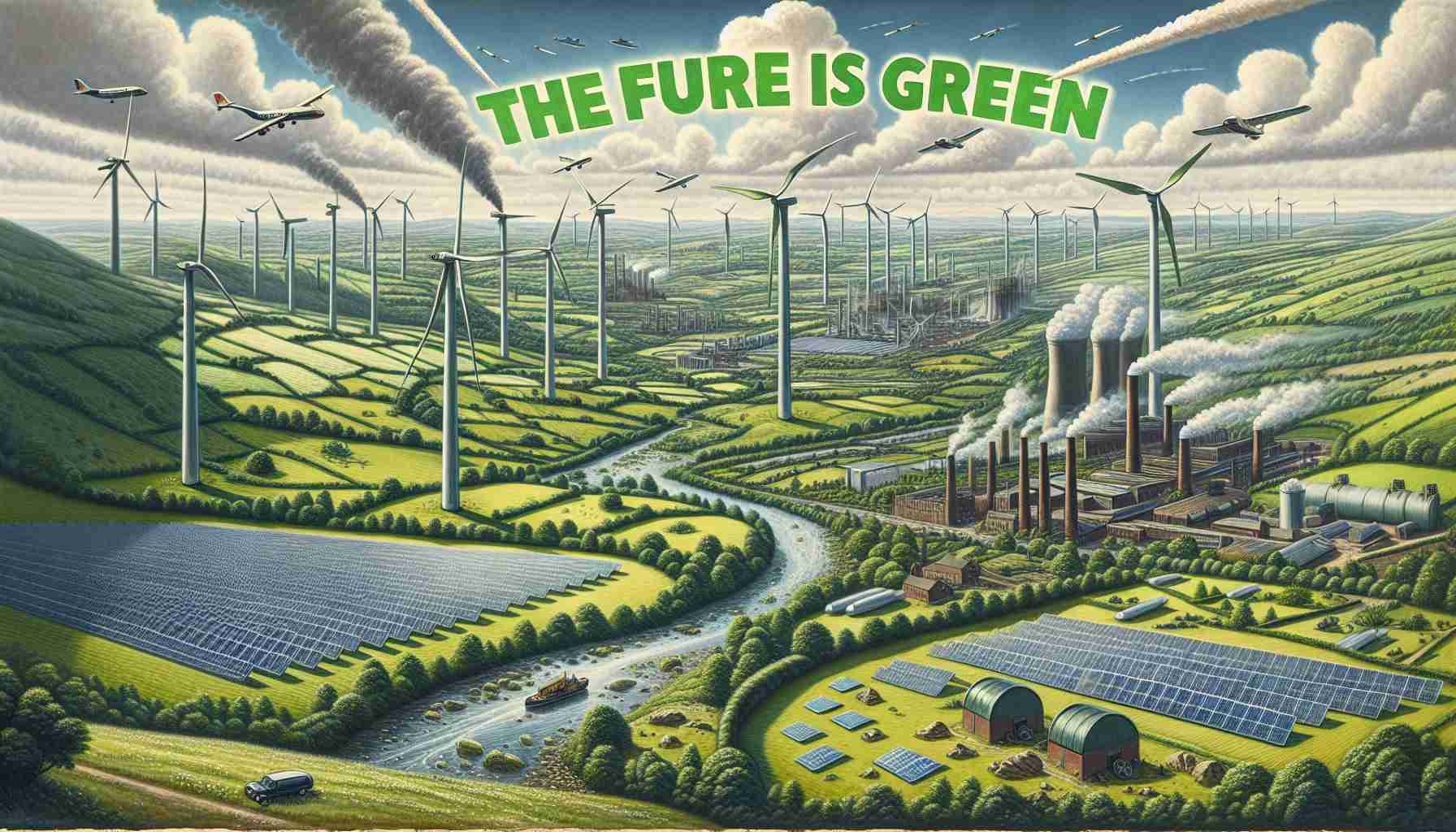
Exciting news has emerged from the UK government regarding its energy plans for the upcoming decade. Ed Miliband, the Secretary of State for Energy and Climate Change, unveiled the “Clean Power 2030” initiative, aiming for a remarkable 95% transition to green energy by the end of the decade. This ambitious blueprint includes assigning ministers the ultimate authority on significant onshore wind farm projects.
Describing the initiative as transformative, Miliband highlighted the potential for energy security and job creation, along with enhanced climate action. He emphasized that leveraging Britain’s natural resources is crucial in shielding citizens from the unpredictable global energy market dynamics.
The plan further proposes empowering the energy regulator to expedite grid connections, a necessary move to address the backlog of energy projects awaiting integration into the National Grid. Miliband’s proposals will not only allow onshore wind developments returned to the Nationally Significant Infrastructure Project framework but will also shift final approval authority from local councils to the government for projects exceeding 100 megawatts.
The Department for Energy Security forecasts that these changes could attract around £40 billion in private investment annually. Echoing the anticipated positive outcome, the energy industry and environmental groups have welcomed the initiative.
With the recent commitment to carbon capture technology in Teesside set to roll out by 2025, the UK is clearly on a path towards reducing its dependency on fossil fuels, particularly in light of soaring energy bills triggered by global events. The journey towards a sustainable energy future is underway, promising significant transformations for Britain.
UK’s Bold Move Toward a Green Energy Future: Clean Power 2030 Initiative
Overview of the Clean Power 2030 Initiative
The UK government is making a significant stride in its energy policy with the introduction of the “Clean Power 2030” initiative. Spearheaded by Ed Miliband, the Secretary of State for Energy and Climate Change, this ambitious program aims for a staggering 95% transition to renewable energy sources by the end of the decade. This initiative underscores a commitment to not just reducing carbon emissions but also enhancing energy security and job creation across the nation.
Key Features of the Initiative
1. Onshore Wind Farm Projects: The initiative proposes that ministers will have the ultimate authority over major onshore wind projects, expediting approvals and fostering growth in renewable energy infrastructure.
2. Streamlined Grid Connections: Empowering the energy regulator to fast-track grid connections addresses the current backlog of energy projects. This step is crucial for effective integration of renewable energy sources into the National Grid.
3. Ministerial Oversight: By shifting the final approval of significant projects (exceeding 100 megawatts) from local councils to the government, it is expected to enhance the efficiency of project execution.
Economic Impact
The Department for Energy Security projects that these reforms could generate approximately £40 billion in private investment every year, significantly boosting the UK’s economy. This investment will not only help in developing renewable technologies but also stimulate job creation in various sectors related to the energy industry.
Environmental Goals and Innovations
The Clean Power 2030 initiative aims to ensure that the UK harnesses its natural resources more effectively, thereby reducing vulnerability to global energy market fluctuations. The government is committed to rolling out carbon capture technologies, particularly in regions like Teesside by 2025, as a part of this overarching strategy to diminish reliance on fossil fuels.
Pros and Cons
Pros
– Job Creation: The initiative is anticipated to generate numerous jobs in the renewable energy sector.
– Increased Investment: A projected influx of £40 billion in private investment can lead to rapid advancements in energy technologies.
– Energy Security: Reducing dependence on volatile fossil fuels strengthens national energy security.
Cons
– Regulatory Concerns: Shifting authority from local councils to the government may raise concerns about local governance and community involvement in energy planning.
– Implementation Challenges: Rapid changes in infrastructure and technology adoption might pose challenges in terms of coordination and funding.
Trends and Future Predictions
The UK’s Clean Power 2030 initiative aligns with global trends towards sustainability and climate responsibility. As countries increasingly pivot away from fossil fuels in response to climate change, the UK’s efforts could serve as a model for other nations. Continued investment in innovative technologies, like carbon capture, indicates a forward-thinking approach to environmental stewardship.
Security and Sustainability Aspects
The Clean Power 2030 initiative not only prioritizes renewable energy but also embeds sustainability into the fabric of the UK’s energy strategy. By focusing on efficient energy generation and infrastructure updates, this plan aims to assure citizens of a stable, less volatile energy future.
Conclusion
The Clean Power 2030 initiative represents a transformative moment for the UK, positioning it as a leader in the global transition to renewable energy. As the government mobilizes resources and regulatory frameworks to support this shift, the anticipated benefits for the economy and the environment are profound.
For more details on UK’s energy strategy, visit gov.uk.



